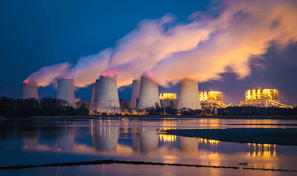This article is from the latest Good Investment Review, which you can download free here.
Innovative companies using advanced technologies can help address climate change and generate attractive long-term returns, says Diana Philip, Investment Specialist Director at Baillie Gifford.
As a global equity impact fund, we look to invest in companies whose products and services are driving change across our four impact themes: Social Inclusion, Education, Environment & Resource Needs, Healthcare & Quality of Life, and Base of the Pyramid (addressing the needs of those at the bottom of the global income ladder).
Within our Environment and Resource Needs theme, we look for companies that can improve our resource efficiency and reduce the environmental impact of our economic activities. Part of this involves identifying companies that can help to decarbonise hard-to-abate sectors by improving efficiency, reducing waste, and developing novel technologies often using Artificial Intelligence (AI).
For example, decarbonising food production is a complex challenge, with agriculture accounting for about 20 to 25 per cent of global greenhouse gas emissions (GHG). It will therefore require multiple solutions.
 Portfolio holding Deere is contributing to this goal with its precision agriculture offerings. Precision agriculture leverages advancements in digital technologies including AI to help farmers obtain higher yields, while reducing pesticide and fertiliser usage. Deere’s See & Spray technology uses computer vision and machine learning to identify weeds from crops in real time. Sprayers then target only the weeds, reducing herbicide usage by over two-thirds.
Portfolio holding Deere is contributing to this goal with its precision agriculture offerings. Precision agriculture leverages advancements in digital technologies including AI to help farmers obtain higher yields, while reducing pesticide and fertiliser usage. Deere’s See & Spray technology uses computer vision and machine learning to identify weeds from crops in real time. Sprayers then target only the weeds, reducing herbicide usage by over two-thirds.
Autodesk is tackling these challenges head-on. The company is a leading software provider for the architecture, engineering, and construction (AEC) sector. In recent years, it has launched a range of products that are helping to improve efficiency.
Autodesk’s design software is increasingly incorporating AI and Machine Learning to help architects to design more energy efficient buildings, select materials that are more sustainable, and to reduce the environmental footprint of the buildings they design. For instance, Autodesk’s Embodied Carbon Calculator helps designers choose materials with lower embodied carbon. Autodesk Insight empowers architects and engineers to design more energy-efficient buildings by providing an advanced simulation of building performance. Finally, Autodesk Construction Cloud optimises workflows for project owners and contractors to reduce the likelihood of rework.
Construction is another difficult sector to decarbonise. Buildings account for 38 per cent of energy and process related GHG emissions globally and the industry has been one of the slowest to digitalise. As a result, a significant proportion of projects finish late, and 10 per cent of the materials used in construction go to waste.
Autodesk is also releasing a range of construction related software that helps people who actually put up the buildings to communicate and collaborate more effectively. This helps to reduce errors and reduce waste, and as a result, decreases some of the negative environmental impact of the construction activity.
The transition towards a more sustainable and inclusive future will present large growth opportunities for purpose-driven companies. By investing in a subset of them with outstanding management teams and the potential to build durable competitive advantages, we believe that we can generate attractive long-term investment returns for clients, and contribute towards a better future.





